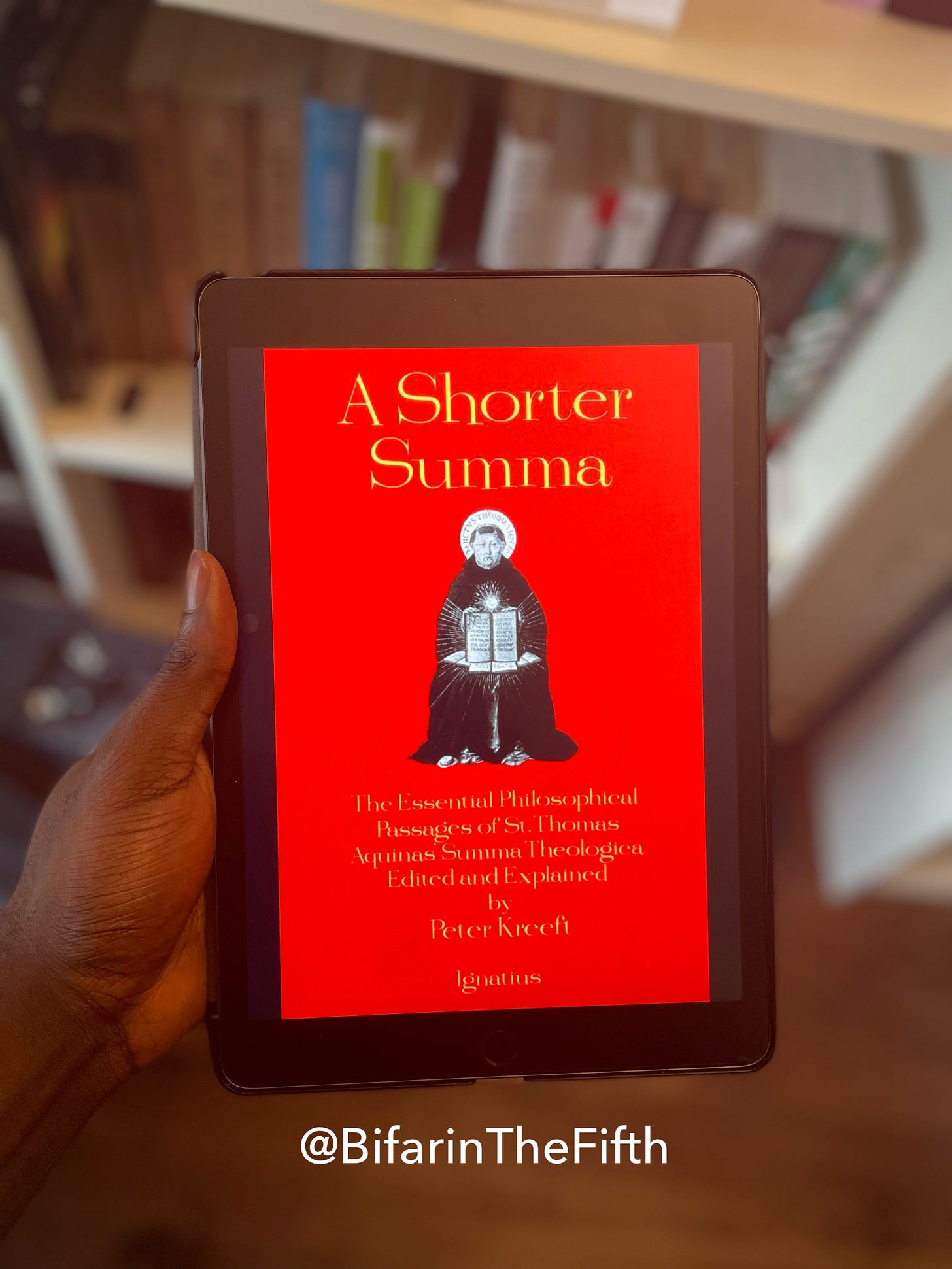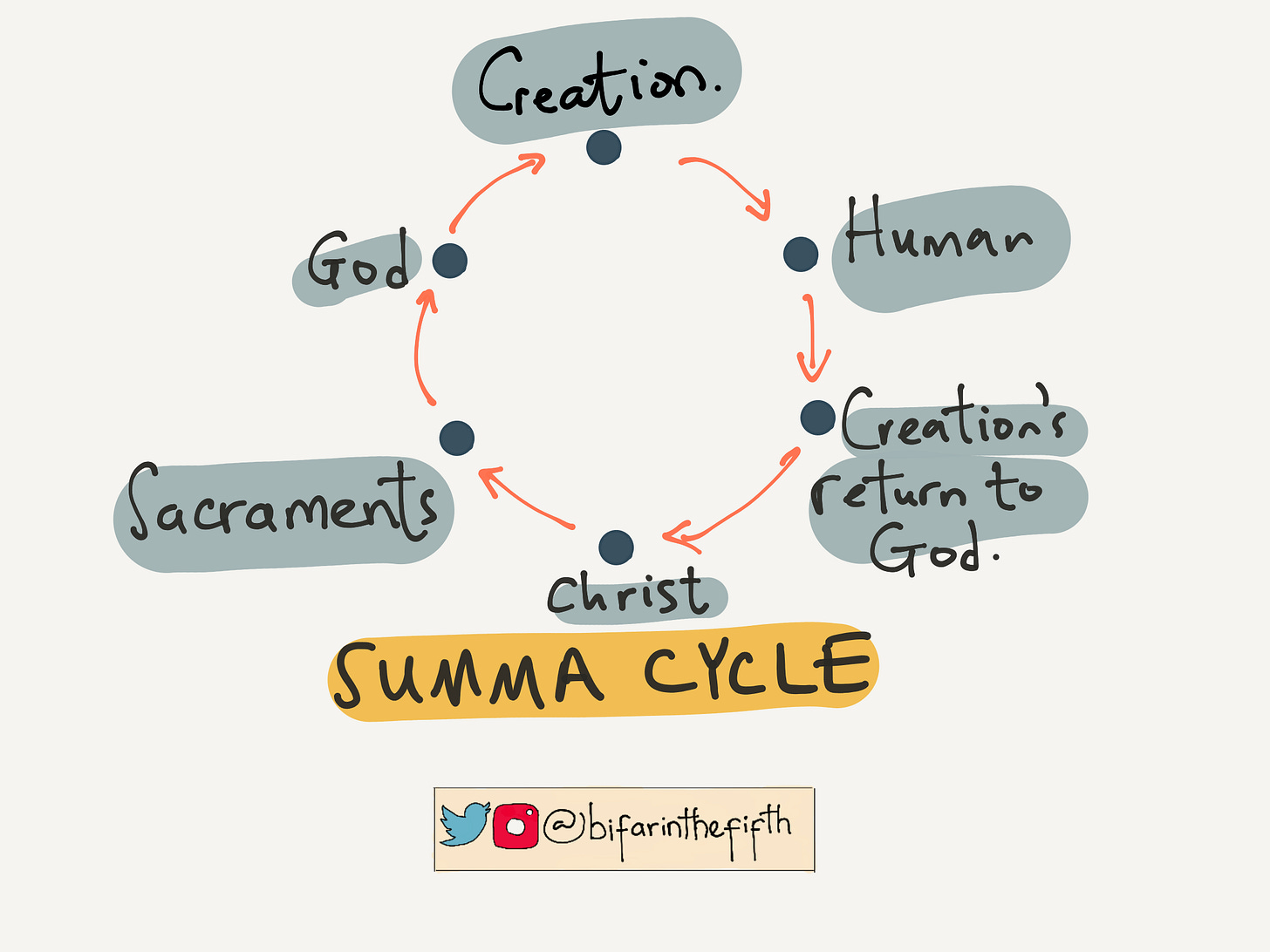Book Review: A Shorter Summa
Saint Thomas's Own Concise Version of His Summa Theologica (A Bite-Sized Review)
Book Title:
A Shorter Summa: The Essential Philosophical Passages of Saint Thomas Aquinas' Summa Theologica by Peter Kreeft.
If you don’t know him for some reason, Thomas Aquinas was a Dominican friar and priest who lived in the thirteenth century. He is one of the most influential theologians in Christian history with his signature approach of synthesizing Aristotelian philosophy and Christianity principles.
One of his signature works is the Summa Theologica, which means the Summary of Theology. Though it was unfinished, standing at over 5000 pages, the question is, what hope does an ordinary person have to read the book? And the Summa isn’t a romance novel in your local bookshop. The ideas are as deep as they could get.
Here comes the Shorter Summa, and as the subtitle says, it is the essential philosophical passages of Saint Thomas Aquinas’ Summa Theologica. The book is written by Peter Kreeft, a professor of philosophy at Boston College.
It's a little book at 165 pages compared to the 5k pages of the original set. Another thing is that, as I stated earlier, Aquinas is not easy to read. However, successfully engaging with his work can be very impactful. Here is Dr. Kreft:
“There are three kinds of philosophers: those who at first seem clear, but upon further readings become more and more obscure; those who at first may seem obscure but become clearer and clearer upon each reading (St. Thomas is the prime example of this kind), and those who seem obscure at first and remain obscure.”
The second point I will make is that Summa would be unintelligible if you are not very familiar with the basic concepts and technical terms in Aristotelianism. Reading Shorter Summa has made me realize, for example, that I really need to bone up more on my Aristotle.
My third point will be to state that reading Aquinas feels different (and can be dizzying) because of the way he structured his writing. The main building block of the summa is the “Article,” which takes the form of a question with a Yes or No answer. An example of an “Article” is “Whether Sorrow Is the Same as Pain?” or “Whether God Exists.”
Each Article then has five structural parts: 1) the question. 2) several objections to the answer Aquinas will ultimately present. This second part is quite exciting and impressive because he basically steelman an argument (helps the folk at the other end of the debate to construct the strongest form of their argument). This was why Dr. Kreft, in the book, stated,
“One who is seeking the strongest possible arguments against any idea of St. Thomas will rarely find any stronger ones, any more strongly argued, than those in St. Thomas himself.”
The third part of the Article is his own position on the issue at hand. The fourth part is his justification for that position, and finally, the fifth part is where he addresses the objections raised in the first part. Talk about rigor!
The summa, in general, concerns itself with the ‘cyclic nature of the cosmos,’ starting from the birthing of the material universe from God, culminating in the creation of humans, and the procession of humans back to God via Christ and the religious rituals.
In summary, the book is just a super short snippet of Aquinas's full story. In it, Dr. Kreft chooses related articles in ethics, Aquinas epistemology, and psychology, proofs for the existence of God, the nature of God, Aquinas Anthropology, et cetera.
Rating (over 5): ⭐️⭐️⭐️
The somewhat low rating, more than anything else, represents my insufficient understanding of the underlying Aristotle’s philosophy.




